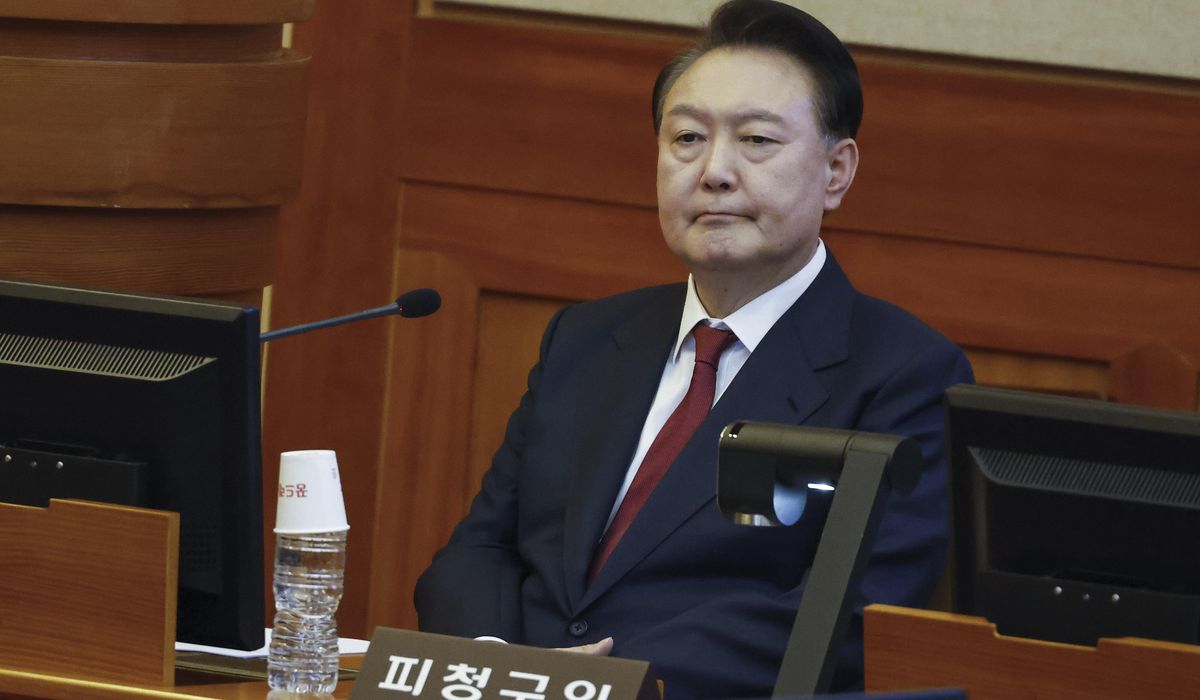


South Korean President Yoon Suk Yeol was formally charged Sunday with attempting to lead an insurrection against his own government in an unprecedented move by state prosecutors in the deepening legal battle sparked by Mr. Yoon’s short-lived attempt to declare martial law last month.
Now in solitary detention, the impeached Mr. Yoon faces years in prison — and potentially the death penalty — if convicted, an ironic result as the conservative president had himself served as the nation’s chief prosecutor before being elected to a five-year term as president in 2022.
Mr. Yoon’s ordeal has sparked a deep political crisis in Seoul, with pro- and anti-Yoon demonstrations on the streets of the capital. If he is permanently removed from office, South Korea would hold early presidential elections that polls say the opposition party would stand a good chance of winning.
Mr. Yoon’s lawyers over the weekend again unsuccessfully pressed for his release, calling his Jan. 15 arrest after a tense standoff with police outside his presidential compound illegal.
Although prosecutors reportedly rejected a recommendation to charge Mr. Yoon with more crimes, including obstruction of legislative proceedings, the defense team on Sunday still accused prosecutors of judicial overreach.
“Today’s indictment of the president will remain as a shame in the history of South Korean prosecutors that they cannot erase,” Mr. Yoon’s lawyers said in a statement, The Associated Press reported. “We stress once again that a president’s declaration of martial law can never be rebellion.”
But insurrection is one of just a very few crimes from which a sitting South Korean president cannot claim immunity. Prosecutors pressed the court over the weekend to extend Mr. Yoon’s detention in light of the newly filed charges.
Mr. Yoon abruptly declared martial law on the evening of Dec. 3, following a long and bitter standoff with the opposition Democratic Party of Korea, which has the majority in the National Assembly. With much of his agenda blocked and top officials being impeached, Mr. Yoon accused opposition forces of “anti-state activities” and of seeking to create a “legislative dictatorship.”
But lawmakers quickly rescinded the declaration and 11 days later voted to impeach the president. The nation’s Constitutional Court is now deciding Mr. Yoon’s fate. If he is permanently removed from office, new elections could be ordered within 60 days.
Under the insurrection charge, Mr. Yoon theoretically could face the death penalty if convicted, although most consider that extremely unlikely.
• David R. Sands can be reached at dsands@washingtontimes.com.
